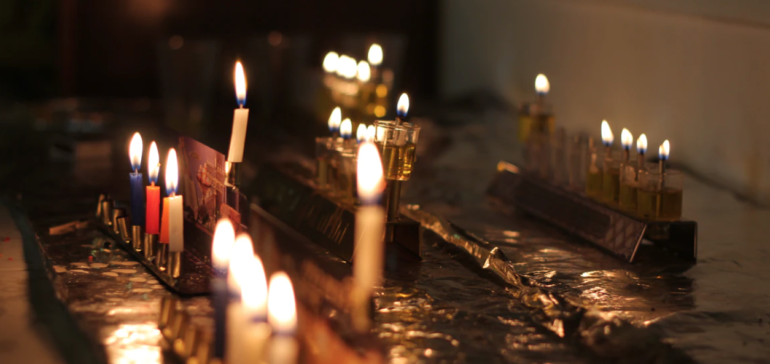
Are Chanukah and Purim the Only Holidays We’ll Still Celebrate When Moshiach Comes?
Dear JITC-
Is it true that the only holidays we’ll still celebrate when Moshiach comes are Chanukah and Purim? If so, why?
Sincerely,
Chaya
Dear Chaya-
Thanks for your question. This is a topic that I addressed a few years ago in a different context, so please forgive me if I repurpose what I wrote then because the facts haven’t changed in the interim.
Let’s start with Purim. The fact that Purim will be observed forever is explicit in the text of Megillas Esther: “these days of Purim will never cease among the Jews…” (9:28). The Yalkut Shimoni (a collection of midrashim) that teaches us that, in the messianic era, this will be to the exclusion of other holidays (Remez 944). Rabbi Elazar there opines that Yom Kippur will also endure since the Torah calls it “an eternal statute” (Leviticus 16:34). This should not surprise us since “Yom Kippurim” – “day of atonements” – also means “a day like Purim!”
Most people only express the concept of a uniquely enduring holiday regarding Purim. The idea that “except for Purim” includes Chanukah was introduced later, by Rav Moshe Feinstein ztz”l and others.
Rav Moshe’s grandson once expressed hope that he would never have occasion to use his new silver menorah on the basis that all holidays would be abolished when Moshiach comes. Rav Moshe clarified that “except for Purim” also includes Chanukah, as the two of them are the same kind of holiday (Mesoras Moshe). As noted, some other authorities express this same idea but it’s nowhere near as widely known regarding Chanukah as it is for Purim.
It must be pointed out that numerous authorities, such as the Bnei Yissaschar, refuse to take literally the idea that the Torah’s holidays will ever be abolished. After all, how can the Moshiach’s arrival cause us to suspend the observance of mitzvos? Rather, the intention is merely that the observance of the holidays that commemorate the Exodus and the giving of the Torah will pale in comparison to the everyday wonders of life in messianic times.
A similar discussion is held regarding Biblical books. The Rambam says that in the messianic era, all the books of Nach (the Prophets and the Writings) will be discarded except for the Book of Esther (Hilchos Megillah v’Chanukah 2:18). Again, most authorities have trouble taking this at face value. As the Lechem Mishneh and other commentators explain, all the books of Nach have many deep lessons that we learn from them and it would be detrimental to jettison all those teachings. Rather, they understand it to mean that all the Biblical books will still be canon in messianic times but we won’t have occasion to read them publicly as we do now. Megillas Esther, however, will always be read publicly.
Just as the consensus regarding eliminating Biblical books is not to take the Rambam’s statement at its surface reading, perhaps it would be prudent not to take too literally the Midrash about abolishing holidays. The one exception would be Tisha b’Av. The idea that Tisha b’Av will ultimately be a day of joy seems to be long-reaching, well-founded, and intended to be taken literally. Of course, as with all things messianic, we’ll find out for sure when we get there.
Sincerely,
Rabbi Jack Abramowitz
Educational Correspondent
Follow Ask Rabbi Jack on YouTube
If you found this content meaningful and want to help further our mission through our Keter, Makom, and Tikun branches, please consider becoming a Change Maker today.







